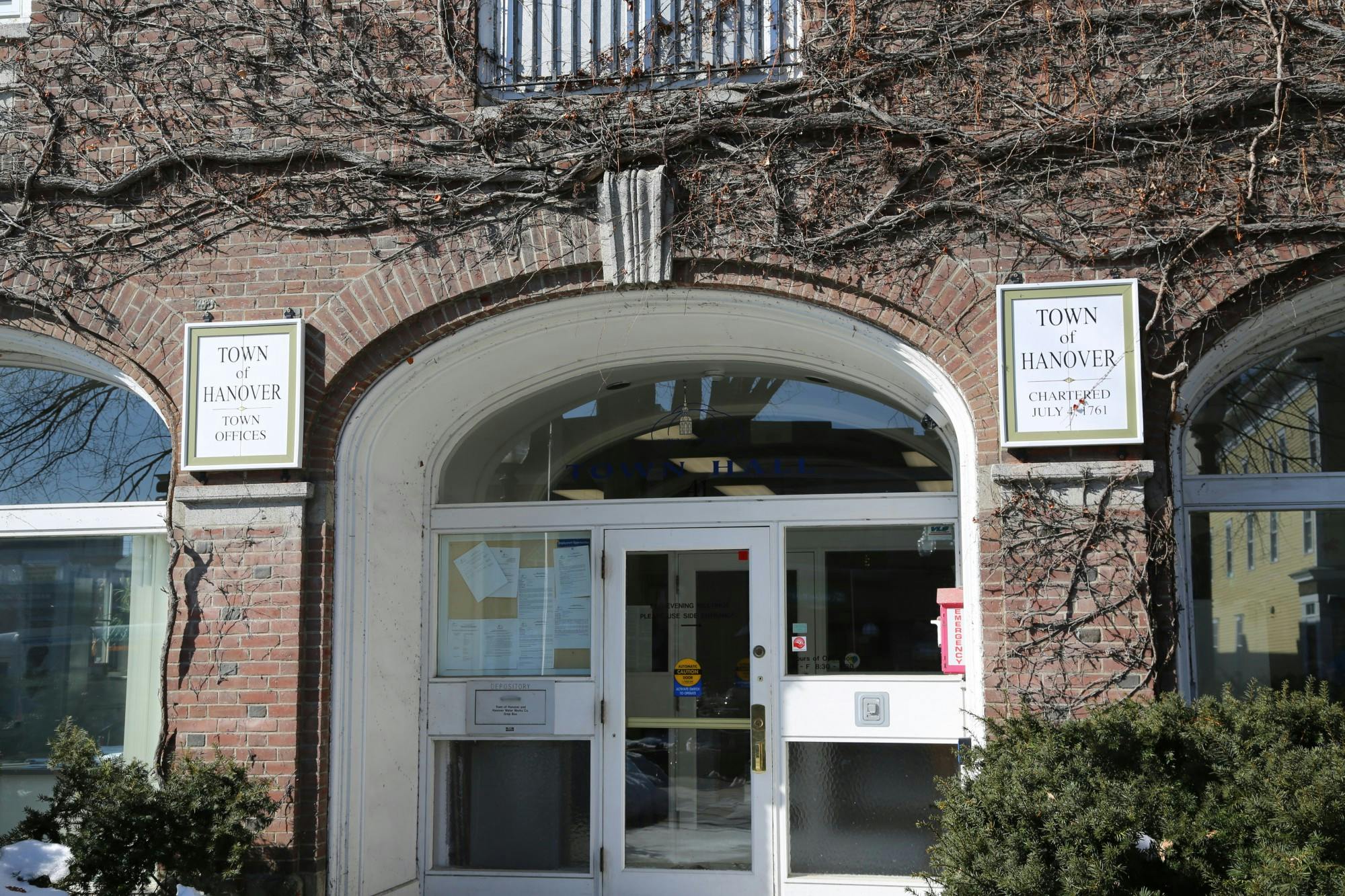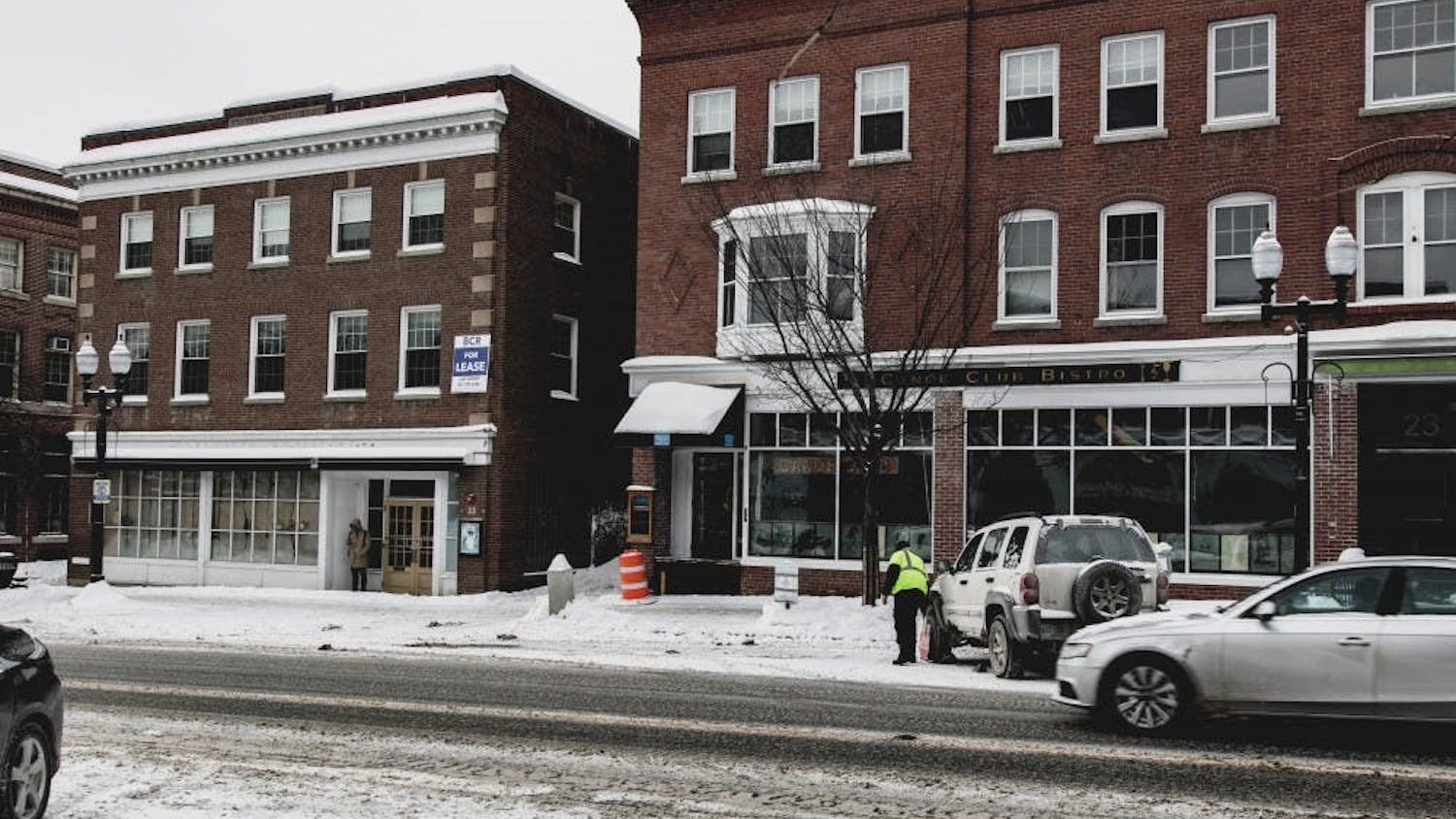The Hanover Selectboard postponed its vote on the “Welcoming Hanover” ordinance on Monday due to controversy over its “Good Faith Compliance” clause. The ordinance, which is intended to improve anti-bias policing and immigrant protections, will now be reconsidered on April 20.
The “Welcoming Hanover” ordinance, officially the “Fair and Impartial Policing Ordinance of the Town of Hanover,” was first introduced at a Selectboard meeting in January. It seeks to prevent biased policing and other discriminatory practices in Hanover law enforcement activity. The proposed ordinance also provides protections for undocumented immigrants. A main stipulation of the proposed ordinance is that police officers may not notify Immigration and Customs Enforcement about undocumented people based solely on immigration status.
The Selectboard hoped to vote on the ordinance at the most recent virtual Selectboard meeting on Monday. Hanover town manager Julia Griffin said she thought that it would pass.
Instead, the vote was postponed over disagreement on the Good Faith Compliance, a clause which clarifies that the ordinance may not be implemented if there is a reasonable belief that it is in conflict with New Hampshire or federal laws.
Griffin said that she was “frankly surprised” when multiple speakers in the public meeting, which was held over Zoom, thought the town was trying to be “sneaky” in adding new language in the agreement.
Griffin added that town counsel and pro-ordinance lawyers had agreed over teleconference before the Selectboard meeting to relocate some language from the Declaration of Purpose to a new Good Faith Compliance later in the document. She said that they “copy and pasted” the language from one section to the other, making no changes.
Over the past three months, Griffin said that the Hanover town counsel and pro-ordinance lawyers have cut out stipulations which might be unenforceable and modeled the proposed ordinance on existing Hanover Police Department impartial-policing policies.
During the Zoom meeting, National Lawyers Guild lawyer Kira Kelley said that the Good Faith Compliance provided the town too much “discretion” over the ordinance. Kelley is one of the lawyers working on the document’s language with the Hanover town counsel.
“We have seen nationally that discretion is the window by which racism comes into play,” Kelley said.
Griffin said that if any ordinance in Hanover is suspected of coming into opposition with state or federal laws, the Selectboard turns to town counsel for advice on how to revise the regulations.
Griffin said that supporters of the ordinance and a group of residents in the Welcoming Hanover Committee want the court, not town counsel, to get involved if any aspect of this ordinance is in violation of state or federal law.
“That’s not how municipalities work,” Griffin said. “If a controversy arose around immigration, for example, and we identified that our ordinance might no longer be legal, we want to be able to seek advice from our town counsel.”
Griffin noted that court oversight of problems can take months to resolve issues.
Many Dartmouth students and local residents tuned in to the meeting to voice their support for the ordinance. Many also said that they objected to the Good Faith Compliance.
Cecelia King ’23 spoke on behalf of CoFIRED, a campus organization which works to advance the rights of undocumented individuals students at Dartmouth College and undocumented people in the Upper Valley. During the meeting, she said that the Hanover Selectboard should consider excluding the Good Faith Compliance, which she said can give the town “an out,” making it easier for law enforcement not to comply with the ordinance.
King, a member of immigration advocacy group CoFIRED’s executive board, wrote in an email to The Dartmouth why the organization supports the ordinance.
“It is urgent that the Select Board pass the [Welcoming Hanover] Ordinance to make our town a sanctuary, because it proves Hanover prioritizes all residents rather than privileging only those with citizenship status,” King wrote.
She also wrote that CoFIRED wants to celebrate a close relationship between the College and the town, but that all Hanover residents must trust in the relationship.
“This trust can be restored if Hanover passes the ordinance and excludes subsections A and B from Section 10 [the Good Faith Compliance clause],” King wrote. “This trust must be definitive, but these subsections give the town a loophole out of complying with the non-collaboration policy the ordinance sets forth.”
Theater and African and African American studies professor Shamell Bell, who participated in the meeting, wrote in an email statement to The Dartmouth that in light of COVID-19, she is supporting the proposed ordinance in order to encourage leadership in the Hanover Selectboard to be more “compassionate.”
“It is a crucial moment to support the incredible work of community organizers and Dartmouth students working to pass this important ordinance,” Bell wrote. “...[O]nce enacted, the ordinance can only be overturned by a court of competent jurisdiction.”
Griffin said that while it is understandable that a group trying to protect immigrants would be sensitive to federal government regulations regarding immigration, the municipality has an obligation to operate under the laws of New Hampshire and the U.S.
“You may not agree with federal or state law, but it is what it is,” Griffin said.
Kelley said that while there is a federal law that prohibits towns from passing sanctuary city ordinances similar to the one proposed in Hanover, she argued that the law is “plainly unconstitutional”
Residents in nearby Lebanon, NH also voted on March 10 for their city council to pass a similar welcoming ordinance, Lebanon city manager Shaun Mulholland said. The law will go into effect in January 2021, though he said the language can be amended by the council before then.
“There are parts of the ordinance which are unenforceable and illegal,” Mulholland said. “For example, section 6, which would require municipal officials to notify the public by all reasonable means that there are immigration enforcement efforts by federal authorities occuring in the city.”
Mulholland, a former police chief, said Lebanon police already have internal policies that require fair and impartial policing.
“We don’t profile people,” Mulholland said. “We don’t discriminate based on race, color or creed.”
Mulholland said that the city of Lebanon does not deal directly with immigration enforcement, and it has not been an issue until it was brought up by the Welcoming Lebanon group.
“We had one person in the last three years who was arrested on criminal charges and ICE wanted that person and issued an order for their arrest,” Mulholland said. “That was the only time we turned someone over to immigration authorities.”
Mulholland said that when someone is arrested, their information is passed through a criminal records and motor vehicle records check.
“When we do that it goes through the national filtering system,” Mulholland said. “We don’t reach out to [ICE], they monitor the national database.”
Mulholland said that there are a “number” of “problematic” sections of the proposed Lebanon ordinance as it currently stands.
“We have a right-to-know law, NH RSA 91A,” Mulholland said. “ICE is no different than any other person or entity. This ordinance says we cannot share any information with them. Well, New Hampshire state law will trump whatever this ordinance says.”




